“Real Women, Real Work” is a Darling series about everyday women who work in various fields including business, entertainment, science and education. We want to get to know the WHY behind their WHAT and get an inside look into different industries.
Often it is said to find the thing that makes you angry enough to want to change it, and therein lies your passion. Darling got to sit down with SukkhaCitta founder, Denica Flesch, a woman who was fueled by a passion to help end the cycle of poverty affecting residents in “last-mile communities” in Indonesia. The mission of SukkhaCitta is to foster transparency and change for local craftswomen while providing them fair wages.
From the very beginning, her mission was not to start a fashion brand but to solve the problem of an unethical fashion industry. Flesch started SukkhaCitta with the belief that every action has a ripple effect—and that today, more than ever, it is imperative to find ways to support, rather than exploit, the humans who make our clothes and the Earth we live in.
Here’s what she had to about about making a change in the fashion industry:
What was the epiphany or light bulb moment when you knew you wanted to work in the business of ethical clothing?
Having previously worked in the development field, I saw firsthand the challenges faced by last-mile communities in Indonesia. My desire to understand led me to travel and do my own research to see what’s keeping these individuals trapped in poverty.
In a country where education acts as a barrier for these last-mile communities to enter formal employment, craft offers a livelihood option to nearly 30 million people living under poverty. Yet, despite the rise of the creative industry, I was saddened to see the reality for these remarkable artisans. Often, what they receive does not reflect the value of their work, and an unjust equilibrium is perpetuated.
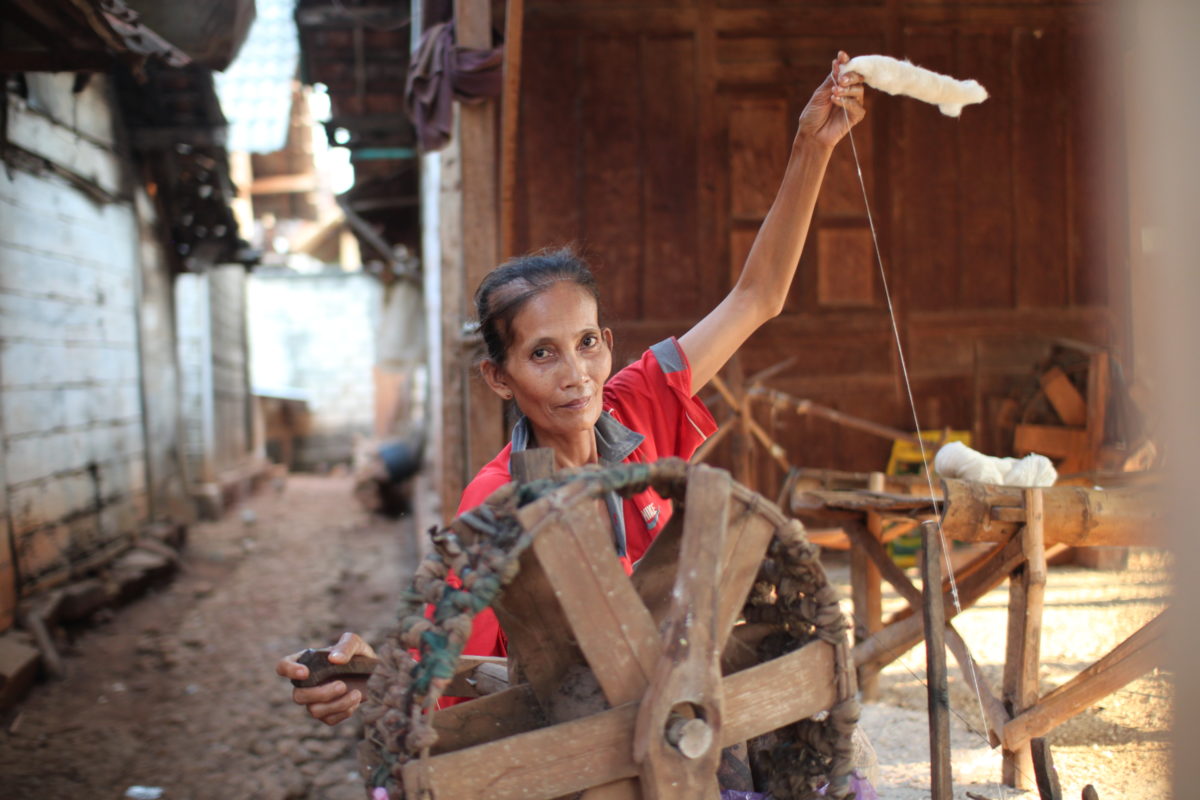
This led me to start SukkhaCitta, a social enterprise that pioneers transparency and change for artisans in villages across Indonesia. The name itself means happiness in Indonesian, which embodies the mission to bring back stories and pride to these remarkable craftswomen who have remained invisible for too long.
What were some obstacles you encountered when starting SukkhaCitta?
You know that feeling of adrenaline rush that fills your mind when you allow yourself to dream of what really matters to you? The excitement as you mentally plan for it is exhilarating. Yet, then comes that little voice that crushes everything and makes you feel small.
What if you fail? Who do you think you are to do this?
Having no background whatsoever in running a lifestyle brand—or a business for that matter—I had to battle fear and self-doubt every step of the way. There was just me with a to-do-list that seemed to get longer day after day. I learned then that it’s possible to have a full-blown mental roller coaster while one is rolling threads off silk scarves.
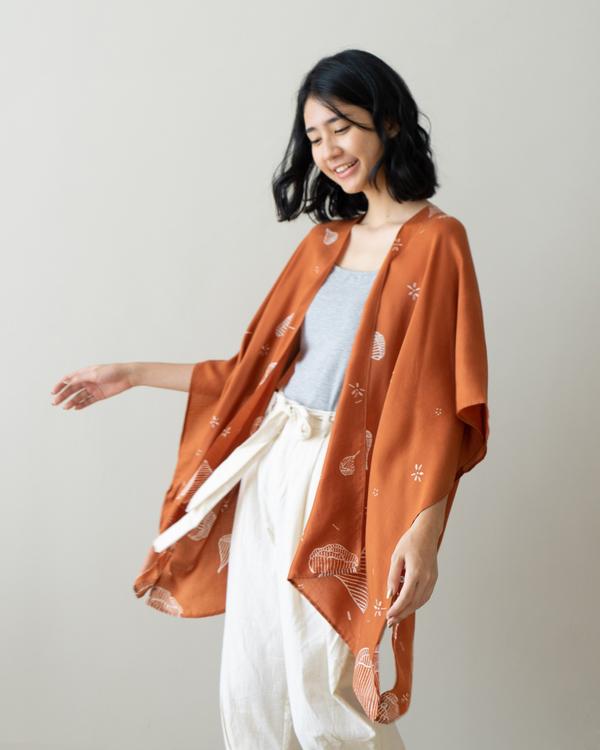
Every day, I wondered whether I’d gone mad leaving my stable corporate job. I wondered if I could pull this off or if I was enough, but I couldn’t stop, not after what I’d seen. I grew up in the city. Things exist in shops. I never realized that behind something as simple as what we wear are women we’ll never meet. I didn’t want my choices to hurt them anymore.
Behind something as simple as what we wear are women we’ll never meet. I didn’t want my choices to hurt them anymore.
Why does SukkhaCitta specifically work in Indonesia? Does your team work with artisans in other countries?
In the past decade, we’ve seen massive progress in industrialization, and its impact can be seen even in rural communities across Indonesia. Unable to compete with machines, artisans are forced to abandon textile traditions that have been practiced through generations. Clothes that were used as a language to communicate values and stories of our civilizations are just disappearing.
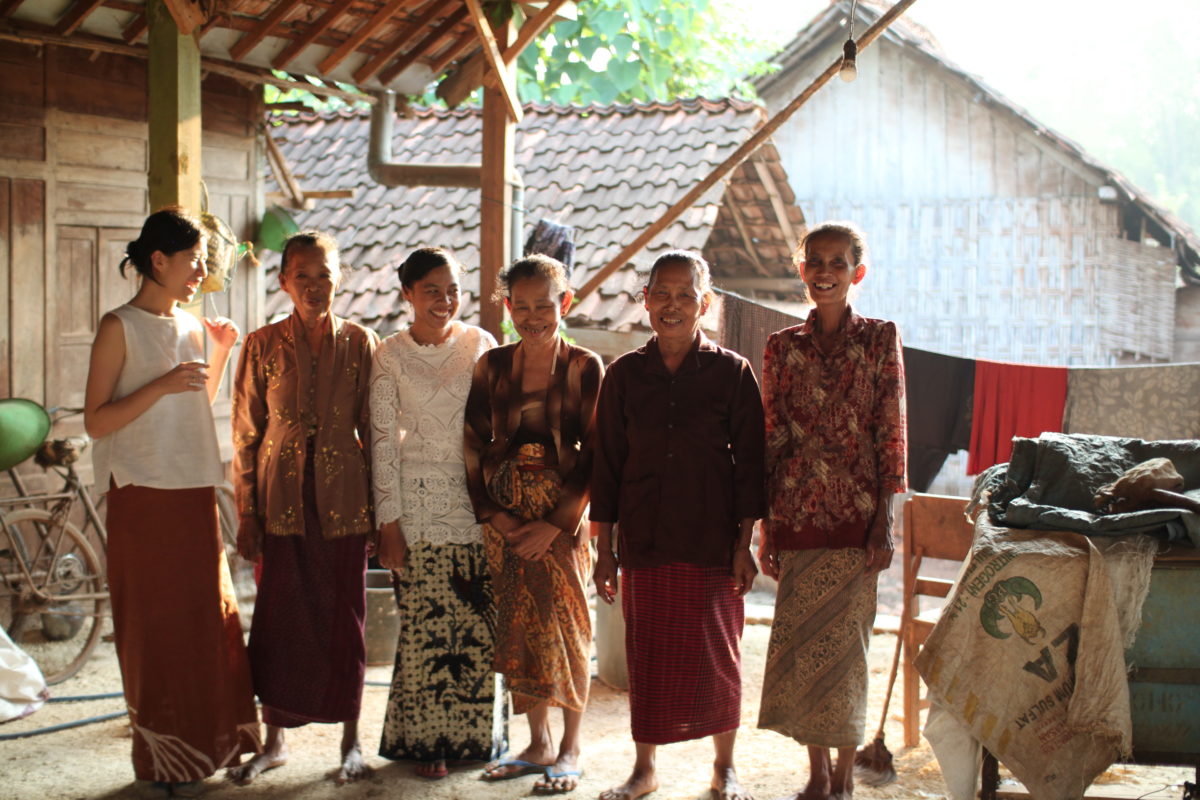
Now, when you think of the origin of your handmade things, you often imagine India or Africa. Despite its rich heritage craftsmanship, Indonesia is often overlooked. I felt the need to build a bridge between you and the remarkable artisans who’ve been invisible for too long.
I felt the need to build a bridge between you and the remarkable artisans who’ve been invisible for too long.
SukkhaCitta focuses on working with villages rather than factories. Can you explain the business model and how this works?
When I was doing my research, I found that craft is a really complicated industry. Between us and the artisans exists a complex subcontracting layer of factories and middlemen—down to someone making that fabric in her home. In fact, it’s estimated that up to 60 percent of handcrafted pieces are made this way, by a woman who couldn’t leave her village because she has to take care of her children, a woman who has no say in what she earns from her work.
There’s currently a lot of discussion surrounding fast fashion and its impact on the workers, but most focus only on factory work. The majority of artisans actually work outside of the formal factory setting. Without any access, most of these remarkable women live in poverty. Being an informal industry, no regulation exists to protect these women. That’s why I decided to work only with villages, not factories.
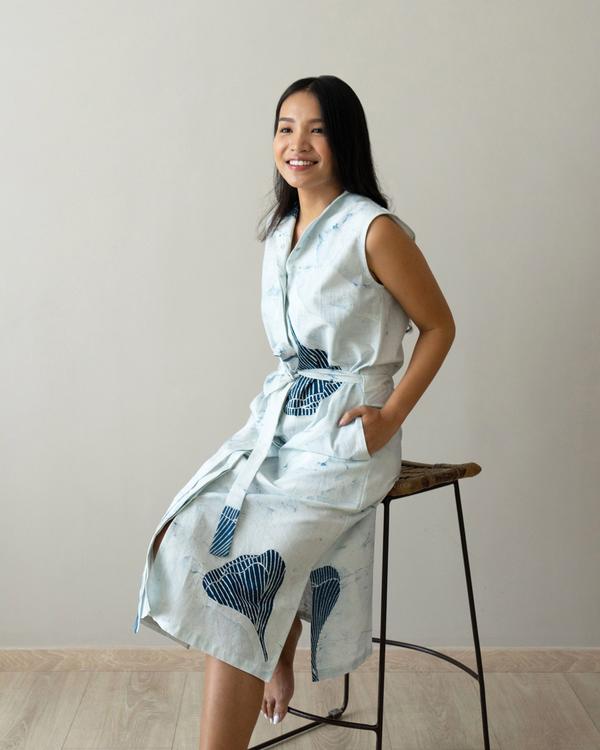
After numerous field trips, we began the process of certification for our local champion and her cooperative, providing them with trainings ranging from natural dyeing, design skills to entrepreneurial knowledge. Afterward, we connect them directly to you, the consumer, so that they can finally be visible and earn a living wage from their craft.
They can finally be visible and earn a living wage from their craft.
What long term benefits does SukkhaCitta have for the artisans and the villages it works with?
SukkhaCitta started with only three women who were brave enough to believe in me. We currently provide access to more than 100 artisans in six villages across Indonesia. On average, their income has increased by 40 percent.
It’s the difference of being able to send their children to school, but perhaps what is far more fulfilling is to see the change in their outlook. There’s this sense of empowerment that wasn’t there before, this belief in themselves.
There’s this sense of empowerment that wasn’t there before, this belief in themselves.
During our last field trip to our first village, I was surprised to see A4 papers on the wall. Apparently, the women were brainstorming how they can improve the education of the children in their village through scholarships. I nearly broke into tears. I think this is the essence of empowerment: when they feel like they can change their own lives and are taking active steps to be agents of change in their own communities.
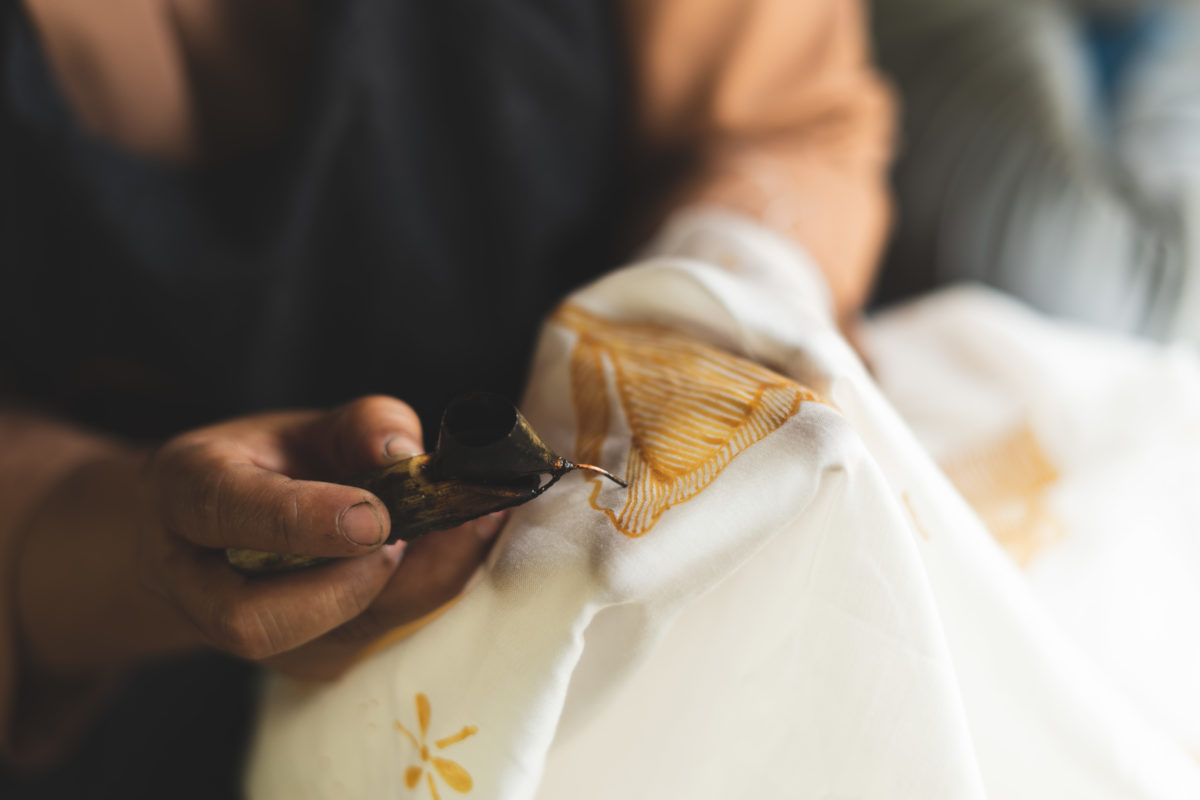 Is there a memorable story of an artisan from SukkhaCitta who has been impacted by the company?
Is there a memorable story of an artisan from SukkhaCitta who has been impacted by the company?
We were planning another natural dye training when we were surprised by our first village, Jlamprang, expressing their desire to volunteer and help us train the new village. In fact, they insisted on donating materials and dyeing vats—a large financial contribution. When I asked why, they simply explained that they received kindness and now wanted to pay it forward.
It appears that our initiatives not only increased incomes, but they started a positive ripple effect. We sense a new pride in our communities: Pride in their heritage and pride in their ability to impact their community. We never expected this kind of ripple effect, but we do our best to support our artisans in their initiatives. This speaks volumes of the incredible kindness found in rural Indonesia and makes us hopeful in the kind of impact we can achieve in the future—together.
What is your long term goal for SukkhaCitta?
I believe that no one should get left behind just because she doesn’t have the same access as we do. After three years of running SukkhaCitta, I began to realize that education is the key to long term change. This year, we started the construction of Indonesia’s first craft school: Rumah SukkhaCitta.
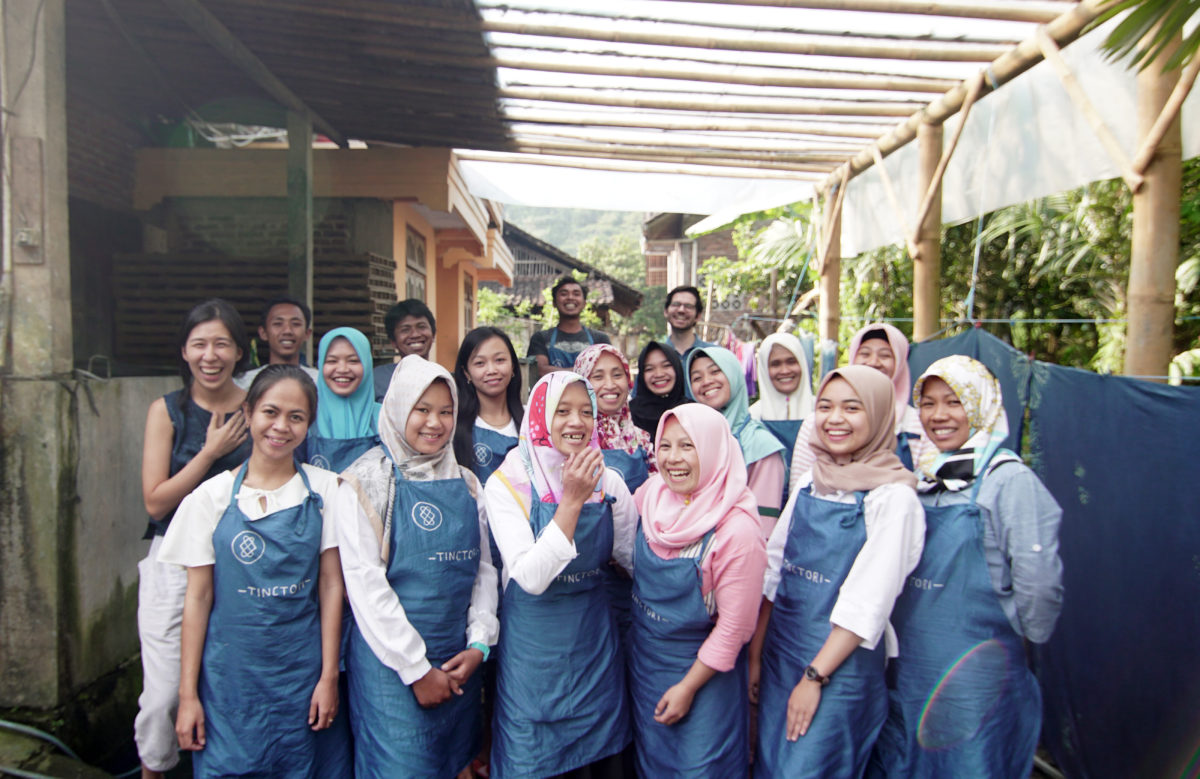
As a social enterprise, we invest all the proceeds from your purchases into these schools. With your help, we’ll finish four by 2020 in Java and Flores. It will be a space where young women can come and learn the skills to change their own lives.
Another big part of our mission is to increase transparency in the sector. A big part of the problem in the fashion industry is that currently, it’s hard for people like you and me to know exactly where, how and who made your clothes. Perhaps more importantly, it is hard to know under what conditions our clothes were made. #MadeRight is our transparency standard, a promise that your piece provided a living wage, is kind to the Planet, while sustaining meaning that is essential for a healthy development.
What are your thoughts on transparency in the fashion industry? How can you, as a consumer, make decisions to support local artisans?
Images via Sukkha Citta
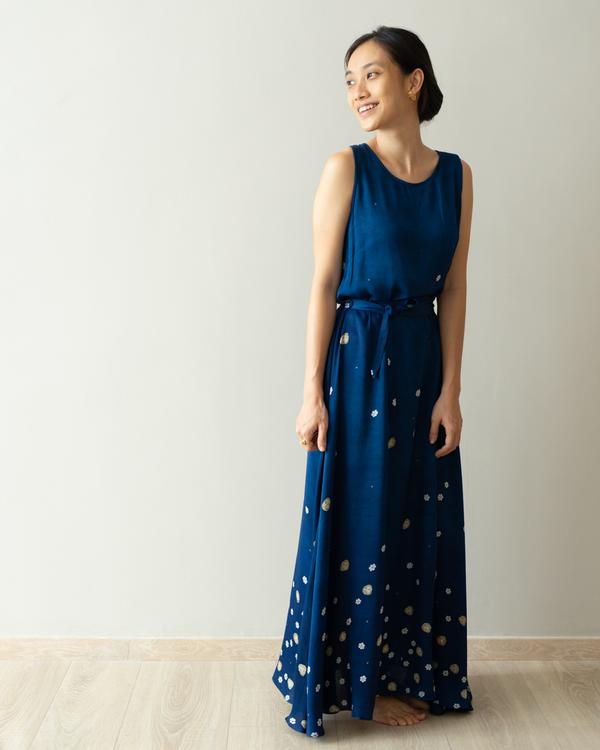










1 comment
I love this! I’m trying to shop more sustainably, going to check out their products! 🙂
–
Charmaine Ng | Architecture & Lifestyle Blog
http://charmainenyw.com